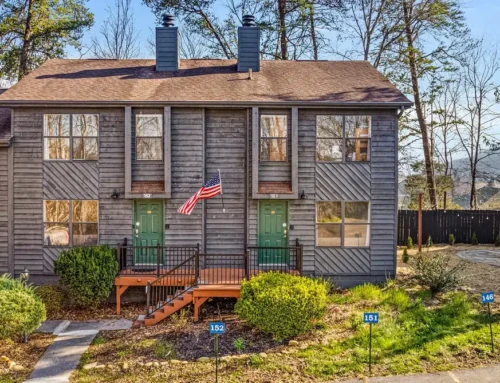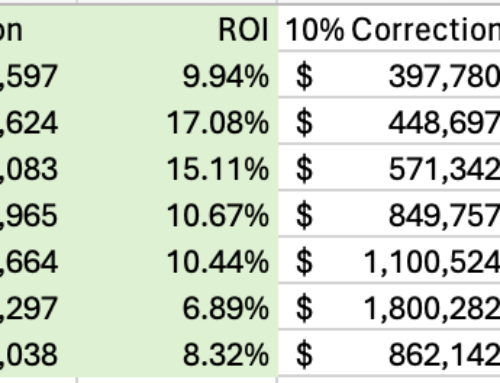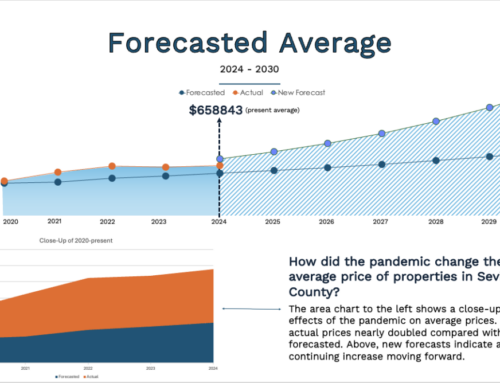Introduction: The Shifting Sands of Airbnb’s Marketplace
In the ever-evolving landscape of the sharing economy, few platforms have made as significant an impact as Airbnb. Recently, however, this titan of short-term rentals has stirred up a sandstorm with its decision to remove 5,000 experiences from their platform. This move is not just a mere blip on the radar; it signals a strategic shift in how Airbnb curates its offerings and interacts with its user base.
This development may leave many wondering about the implications for those invested in the short-term rental market. As we delve deeper into this topic, we will explore what these changes might mean for hosts, guests, and investors alike. We’ll examine how Airbnb’s refining process could potentially reshape the marketplace dynamics and redefine the rules of engagement. So buckle up and join us as we navigate through the shifting sands of Airbnb’s marketplace.
Understanding Airbnb’s Recent Purges
In an effort to maintain its reputation for quality and safety, Airbnb recently made the decision to cut 5,000 experiences from their platform. This move is not unprecedented; it follows a pattern of similar actions taken by the company in the past where low-quality listings were removed to ensure customer satisfaction. For more information, check out this article on Airbnb’s 2024 spring update.
The scale of this purge is significant, representing a substantial portion of the total experiences offered on the site. It reflects Airbnb’s commitment to providing high-quality, reliable options for travelers seeking unique local experiences. The purged listings reportedly failed to meet Airbnb’s stringent standards for quality and safety, leading to their removal. For more details, see this Phocuswire article.
This isn’t the first time Airbnb has taken such drastic measures. In the past, they have conducted similar purges to weed out subpar listings. For instance, in 2017, Airbnb removed thousands of listings in Japan that did not comply with new local regulations. Similarly, in 2020, the company delisted or suspended over 50,000 rentals globally as part of a crackdown on party houses and unauthorized gatherings amid the COVID-19 pandemic. For more on Airbnb’s past measures, see Rental Scale-Up’s article.
These purges are indicative of Airbnb’s proactive approach towards maintaining the integrity of their platform. They demonstrate the company’s willingness to sacrifice quantity for quality, ensuring that every listing aligns with their mission to create a world where anyone can belong anywhere.
While these purges may initially result in fewer choices for consumers, they ultimately serve to enhance user experience by guaranteeing only the highest quality listings remain. As Airbnb continues to grow and evolve, we can expect further efforts to refine and improve the offerings available on their platform.
Criteria for Cuts: Decoding Airbnb’s Quality Standards
In recent times, there has been a noticeable increase in the number of listings and experiences being removed from Airbnb. This has left many hosts puzzled as Airbnb hasn’t provided clear communication regarding their decision-making process. In this section, we will delve into possible reasons behind these removals and try to decode what factors might contribute to a listing being considered ‘low quality’ or not meeting expectations.
Airbnb is known for its commitment to providing unique, comfortable, and safe accommodations and experiences for travelers worldwide. Therefore, it stands to reason that one of the primary criteria for cuts would be safety concerns. Listings with reported incidents or those located in areas with high crime rates could potentially face removal.
Another significant factor could be cleanliness. With the ongoing pandemic, hygiene standards have become more critical than ever before. A host who consistently receives low ratings on cleanliness may find their listing under scrutiny. Similarly, misleading information about the property can also lead to dissatisfaction among guests and consequently, removal of the listing.
The overall guest experience plays a crucial role too. Negative reviews concerning unresponsive hosts, issues with check-in procedures, or lack of basic amenities could all contribute to a listing being deemed ‘low quality’. Furthermore, if a host violates Airbnb’s policies repeatedly, such as by cancelling bookings at the last minute, they risk having their listing removed.
Lastly, non-compliance with local laws and regulations could result in removal. For instance, some cities require hosts to obtain certain permits or licenses to rent out their properties. If a host fails to comply with these requirements, Airbnb may choose to delist the property to avoid legal complications.
While Airbnb’s exact criteria remain somewhat opaque, understanding these potential factors can help hosts maintain their listings and provide better experiences for their guests. It’s important to remember that Airbnb’s ultimate goal is to ensure a high-quality, safe, and enjoyable experience for all users.
Impact on Short-Term Rental Investors
The recent strategic shift by Airbnb to refine its marketplace has sent ripples across the short-term rental investment landscape. This move, aimed at enhancing user experience and ensuring a more streamlined service delivery, presents both challenges and opportunities for investors in this sector.
One of the significant challenges is that these changes may lead to increased competition among property owners. As Airbnb refines its platform, it’s likely to attract more users, leading to an influx of new hosts. Consequently, existing property owners will have to up their game to maintain or increase their market share. They might need to invest more in their properties to make them stand out, which could potentially affect their profit margins.
On the flip side, there are several opportunities that arise from Airbnb’s strategy change. For one, a refined marketplace means better visibility for listed properties. With improved algorithms and search functions, potential guests can find suitable rentals faster, increasing booking rates for property owners. Additionally, with Airbnb focusing on improving customer satisfaction, positive reviews and ratings could significantly boost bookings, translating into higher returns for investors. For an in-depth look at Airbnb’s expansion into boutique hotels and branded buildings, see this Business Insider article.
Moreover, as Airbnb continues to grow and expand its reach globally, investors who strategically position themselves can tap into the ever-increasing pool of potential renters. By understanding the dynamics of the evolving marketplace and adapting accordingly, savvy investors can turn these changes into profitable ventures.
In conclusion, while Airbnb’s strategy to refine its marketplace poses some challenges for short-term rental investors, it also opens up numerous opportunities. The key lies in navigating these changes effectively and leveraging them to maximize returns.
Navigating Uncertainty: Strategies for Staying Relevant on Airbnb
In the dynamic world of short-term rentals, staying relevant is a constant challenge. The marketplace evolves rapidly and hosts must adapt their strategies to keep up with these changes. This article offers actionable advice for Airbnb investors seeking to stay ahead in this ever-evolving landscape.
The first step towards maintaining relevance is improving your listing quality. High-quality listings attract more guests and generate better reviews, which can significantly boost your visibility on Airbnb’s search results. Start by taking professional photos that accurately represent your property. A well-written description highlighting unique features and amenities can also make your listing stand out. Remember to update your calendar regularly and respond promptly to inquiries to show potential guests that you’re an attentive host. For more tips on improving your listing quality, you can refer to Airbnb’s hosting resources.
Next, focus on enhancing the guest experience. Happy guests are likely to leave positive reviews, recommend your place to others, and even return for future stays. Provide clear check-in instructions, offer local recommendations, and be available to answer questions or address issues during their stay. Small touches like providing basic toiletries, clean linens, and a welcome basket can go a long way in making guests feel at home.
Leveraging data analytics is another crucial strategy for staying relevant on Airbnb. Data can provide insights into market trends, guest preferences, and pricing strategies, helping you make informed decisions about your rental business. For instance, analyzing booking patterns can help you identify peak periods and adjust your prices accordingly. Reviewing feedback from past guests can also highlight areas for improvement. Airbnb itself provides some useful tools for data analysis. Their Insights tool gives hosts access to information about traveler demand, popular destinations, and average nightly prices in their area. There are also third-party tools like AirDNA and Mashvisor that offer detailed market reports and competitive analysis.
Staying relevant on Airbnb requires a proactive approach. By improving your listing quality, enhancing the guest experience, and leveraging data analytics, you can adapt to changes in the marketplace and keep your rental business thriving. Remember that success doesn’t happen overnight; it takes time, effort, and continuous learning. But with the right strategies, you can navigate uncertainty and stay ahead of the competition.














